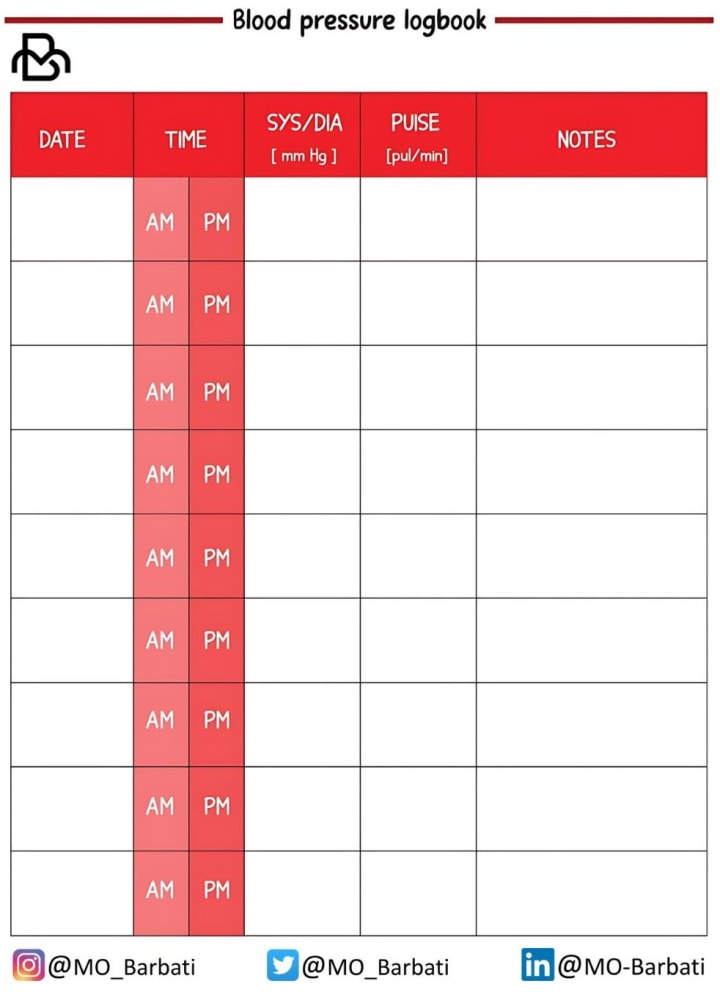Understanding Blood Pressure
How It Affects Vascular Health and Tips for Maintaining Healthy Levels

Blood Pressure and Vascular Health
Blood pressure is the force exerted by your blood against the walls of your blood vessels. It's measured in millimeters of mercury (mm Hg) and is expressed as two numbers: systolic pressure (the pressure when your heart beats) over diastolic pressure (the pressure when your heart is at rest). The ideal blood pressure for most adults is around 120/80 mm Hg.
High blood pressure, or hypertension, can cause your blood vessels to become narrow and stiff, making it harder for your heart to pump blood efficiently. Over time, this can lead to serious health problems, such as heart disease, stroke, and kidney failure.
The Root Causes of High Blood Pressure: Unraveling the Mystery
High blood pressure is a result of various factors, including genetics, lifestyle choices, and medical conditions. Some common causes of high blood pressure include:
- Family history and genetics
- Age
- Being overweight or obese
- Eating a diet high in salt
- Not getting enough physical activity
- Smoking
- Drinking too much alcohol
- Chronic stress
- Kidney disease
- Sleep apnea

By identifying the factors that contribute to high blood pressure in your life, you can take steps to lower your risk and maintain a healthy blood pressure.
Striking the Perfect Balance: The Importance of Maintaining Healthy Blood Pressure Levels
Both high blood pressure (hypertension) and low blood pressure (hypotension) can cause health problems.
Hypertension can strain your heart and damage your blood vessels, increasing your risk for heart attack, stroke, and kidney disease. Hypotension, on the other hand, can cause dizziness, fainting, and even shock in severe cases.

To maintain healthy blood pressure levels, it's essential to monitor your levels regularly and make lifestyle changes as needed.
Practical Tips for Blood Pressure Management: Recommendations for a Healthy Lifestyle
Here are some practical tips for maintaining healthy blood pressure levels:
1. Eat a balanced diet: Choose a diet rich in fruits, vegetables, whole grains, lean proteins, and healthy fats. Limit your intake of salt, saturated fats, and added sugars.
2. Engage in regular exercise: Aim for at least 150 minutes of moderate-intensity aerobic exercise or 75 minutes of vigorous-intensity aerobic exercise per week.
3. Maintain a healthy weight: Losing excess weight can significantly lower your blood pressure.
4. Avoid smoking: If you do smoke, make a plan to quit. Smoking damages your blood vessels and raises your risk for hypertension.
5. Limit alcohol consumption: Stick to moderate drinking guidelines (up to one drink per day for women, and up to two drinks per day for men).
6. Manage stress: Incorporate relaxation techniques, such as deep breathing, meditation, or yoga, into your daily routine.
7. Monitor your blood pressure: Check your blood pressure regularly and discuss any concerns with your healthcare provider.

Medication Management in Blood Pressure Control: A Perspective on Treatment Options
In some cases, lifestyle changes alone may not be enough to control blood pressure. Your healthcare provider may prescribe medication to help lower your blood pressure. Always take your medication as prescribed and communicate with your healthcare provider about any side effects or concerns.

Combining medication with a healthy lifestyle is the most effective way to maintain healthy blood pressure levels and protect your vascular health.
White Coat Hypertension: A Common Challenge in Blood Pressure Measurement
Many people experience a spike in blood pressure due to the stress of being in a medical setting, a phenomenon known as "white coat hypertension." To minimize this effect:
- Practice relaxation techniques before your appointment, such as deep breathing or visualization.
- Inform your healthcare provider of your concerns and history of white coat hypertension.
- Consider using an at-home blood pressure monitor to track your levels in a comfortable setting.

Addressing white coat hypertension is essential to ensure accurate blood pressure readings and proper management of your vascular health.
A Commitment to Vascular Health
By understanding the importance of blood pressure and its effects on vascular health, you can take action to maintain healthy levels and reduce your risk of serious health complications.
Remember, monitoring your blood pressure regularly, making necessary lifestyle changes, and communicating with your healthcare provider are crucial steps in safeguarding your vascular health. Let's work together towards a healthier, happier you.
To help you keep track of your blood pressure levels and make monitoring easier, you can download and use the below logbook!

About the Creator
Mohammad Barbati
Mohammad E. Barbati, MD, FEBVS, is a consultant vascular and endovascular surgeon at University Hospital RWTH Aachen. To date, he has authored several scientific publications and books regarding vascular and venous diseases.






Comments
There are no comments for this story
Be the first to respond and start the conversation.